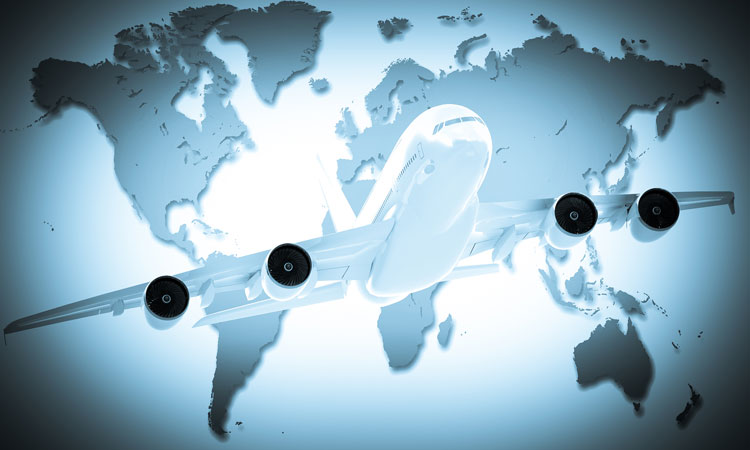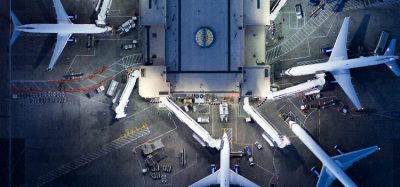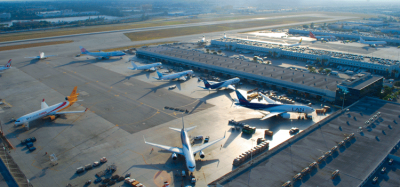An insight into the first-ever charity dedicated to the aviation workforce
- Like
- Digg
- Del
- Tumblr
- VKontakte
- Buffer
- Love This
- Odnoklassniki
- Meneame
- Blogger
- Amazon
- Yahoo Mail
- Gmail
- AOL
- Newsvine
- HackerNews
- Evernote
- MySpace
- Mail.ru
- Viadeo
- Line
- Comments
- Yummly
- SMS
- Viber
- Telegram
- Subscribe
- Skype
- Facebook Messenger
- Kakao
- LiveJournal
- Yammer
- Edgar
- Fintel
- Mix
- Instapaper
- Copy Link
Posted: 20 July 2020 | Aviation Action | No comments yet
Aviation Action, a charity well received by the industry so far, endeavours to help individuals in aviation navigate the employment challenges COVID-19 has inflicted on the industry.


Started by Chris Wild (Head of Airfield Operations, Manchester Airport), a new aviation industry charity – Aviation Action – was established at the end of May 2020, with the aim of becoming the first dedicated charity in the world to provide personal and professional support to the people who really make aviation fly.
Within just a few weeks of being established, a blend of peer support charity members – each with a niche area of aviation-related expertise – had been brought together. The members come from various airports, airlines, the military, and coaching and therapy backgrounds, among others. In mid-July 2020, there were 72 peer support members with CV and training specialisms, engineering and flying abilities, and financial and legal expertise, and the membership continues to grow; using online platforms such as LinkedIn.
The charity has a board of leaders and trustees, two regional advisory boards (north and south UK) and plans for patrons. The plan for 2020 is the laying of foundations for governance and compliance, partnerships and funding, and operations and services. The vision extends to 2025, where it is expected that the charity will have a high profile.
Wild said: “At a time when the industry needs significant support, I felt there was a lack of specific support available for the hundreds of thousands of people who work in aviation. I set up the charity to help people who specifically work in aviation, when they most needed it.”
Aviation Action’s goal and vision
The charity’s purpose is to provide support, coaching, training, mentoring and advice to anyone in the aviation industry who has been affected by the events of the last few months. Online articles from some of the peer support members cover subjects from mental health and debt, to family, relationships and wellbeing. Through donations from larger companies, the charity expects to help those individuals who come forward for assistance in the quest for employment, financial advice, signposting to specialist organisations and counselling. The website also offers webinars, training and podcasts, and access to help is encouraged through a simple contact form. Running anything, even a charitable organisation, costs, despite all peer support members offering their time voluntarily.
As far as possible, any support, guidance or CV reviews are done ‘in-house’ using the expertise of those members within. In the case of extra support needed from an outside organisation, the group insists on those services being heavily discounted for Aviation Action clients to reflect the times. The amount for their services is either at the discounted rate or subsidised by the charity.
Aviation Action, even though still in its infancy is gaining momentum through networking with other aviation companies and organisations to help the people on whom this industry is built, be they exec-jet charterers, managers, baggage-loaders, planners, caterers, cargo-specialists, pilots, engineers, ATCs, marshallers, ticketing agents, cabin crew or refuellers. The industry has such a diverse range of employees and businesses which inter-relate to each other that Wild and his ever-growing team of peer support members feel able to support; utilising the skills they possess already. The emphasis is that the service is free, the only costs will come in the case of a referral to another outside specialist organisation and that is at a heavy discount for the user.
Support
Immediate 24/7 support is available for any colleague working within the aviation industry, including peer-to-peer support (aimed at providing supporting relationships between aviation colleagues) and professional support (there is a diverse range of free professional support on hand to assist aviation colleagues with mental health practitioners, CV/interview/pilot assessment preparation, legal and HR issues).
Coaching
Aviation Action has an unrivalled selection of wellbeing, lifestyle, career and personal resilience coaches, ready to provide aviation colleagues free support, tailored to their needs.
Mentoring
A network of mentors with schemes covering young people in aviation, women in aviation, BAME in aviation and military to civil are available through the charity.
Training
Aviation Action provides topical, mental health and career-focused training resources, many of which are free or heavily subsidised. This helps aviation colleagues gain access to training, improving their skills, knowledge and experience; benefiting them or their current/future employer.
Advice
Aviation Action provides mental health, employment, finance, family and relationship advice (and everything in between) using articles written by fellow industry colleagues. Bespoke advice is also available via our peer or professional support network.
An increased need for support due to COVID-19
Aviation Action envisages a large number of people in the UK alone will be in need of its services, especially as lay-offs are now happening daily at an alarming rate. Even with the supposed return to operations, the airline industry is anticipated to take around two to three years to recover fully, according to speculators.
The impact of COVID-19 across the globe has seen thousands of redundancies, lay-offs, collapses, withdrawal of services, fear and anxiety across the aviation world, which in turn impacts so many others seemingly unrelated. Livelihoods have been lost and whole businesses have been forced to either be put on hold forcing a cashflow crisis, or actually wound down completely.
The devastating effect on airport operations in particular, as demand for flights during the lockdown period has slumped, leaves airfields looking like ghost towns, as operators either shut down, leaving their airliners parked in eerie rows, or fly them off to designated airfields where they can be stored awaiting either redeployment, retirement from service or the scrapyard.
Seeing this in person at Manchester, Wild commented: “Airports have been hugely affected by the COVID-19 pandemic. Airports have had to strategically reassess long-term viability and due to high fixed costs, most likely undertaken a re-financing exercise to ensure suitable liquidity. Traffic levels experienced have been approximately one per cent of usual passenger figures, with many airports handling a single day’s worth of passengers in normal circumstances across three months.
“Airports have significant challenges with contracting their operations to ensure a minimal cost base is achieved, many consolidating terminal operations and adjusting operating hours: An unusual and challenging activity compared to the normal emphasis on expansion and capacity management. Equally, airport recovery and remobilisation has been difficult with adjusted capacity models due to social distancing, re-energising airport systems in a COVID-19 secure way has been a test for airports, airlines and service partners.
“Finally, and most importantly, the effect on our people: A totally different working environment and extended periods of absence will create anxiety, worry and nervousness which could lead to increased operational risk.”
Aviation workforce after COVID-19
As more and more airlines experience a massive slump in demand, the knock-on effect is tangible for third parties, such as handling agents, outlets and suppliers. One of the key areas for concern is the amount of people needing to quickly rejoin the jobs market, and there is a need to convince those in the aviation sector that the skills learnt are deeply transferrable to any other industry. What has become apparent is that there is often a lack of belief that those skills can be transferred at all, seeing as aviation seems to be such a niche sector.
Simon Marton (author of ‘Journey of a Reluctant Air Steward’) is one of the peer support members and one of the members who does not work in the industry anymore. His take is pragmatic:
“It is great to be part of something bigger, a network that can reach out to all sorts of workers who have suddenly found themselves without their livelihoods, in bewilderment or in desperation. This was so sudden and a brutal shock for so many, that a charity like this provides supporters who can truly empathise and add some realistic advice for the immediate future. I was honoured to have been asked to join Aviation Action, and have been happy to volunteer my time, having worked in airlines for several years before turning my sights on other paths. Skills learnt in any area of aviation are immensely transferrable, and are not just confined to fan blade replacement, ILS approaches or getting a piece of cargo on board a flight to Japan. If aviation is unlikely to fully recover for at least a couple of years, then there are other avenues out there worth considering with a tweaking of the CV.”
What is clear is that a high proportion of clients in need of help have come through LinkedIn. The rating of speed and quality of communication has been ‘good’ to ‘excellent’. Some have even become peer support members through their experiences.
In short, it appears the charity has arrived at just the right time to support and guide anyone affected by the current global pandemic. There are plans to expand the charity to reach more people outside of the UK and Ireland as messages come from as far away as Australia.

















